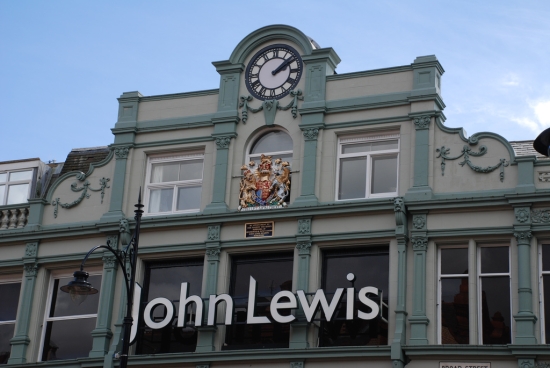With Christmas over for another year and life returning to normal, high street retailers across the country will be tallying up proceeds from the festive season and crossing their fingers that totals hit much needed highs to compensate for a poor year of trading.
However, some high profile stores are continuing celebrations into the New Year after smashing sales records before the Boxing Day sales had even arrived, with shoppers boosting both the high street and online revenues in the first post-recession Christmas for four years.

John Lewis is one chain which has had a particularly merry Christmas, breaking sales records for two consecutive weeks in the run up to December 25th. Of course, the department store chain is always a festive favourite due to its heart-warming seasonal advertising campaigns and promotional offers – yet this year it seems more consumers than ever chose to purchase their gifts at one of their UK stores.
In the five weeks to December 29th total sales amounted to £684.8 million, during which time the record for 24 hourly takings was again broken. This occurred on the 27th December, coinciding with the launch of the chain’s post-Christmas sales and seeing a staggering £31.7 million being spent by customers.
The effect upon sales has been hugely positive, especially in a time where consumers are wary of overspending in case the economy dips once more into recession. Like for like sales climbed by 13 per cent excluding the impact of new store openings.
Meanwhile, categories such as electrical and home technology sales and fashion and beauty also exceeded expectations – growing by 30.9 per cent and 10.4 per cent respectively. This will be especially cheering for manufacturers and retailers within these sectors, as the recession caused consumers to cut back on luxuries such as pampering items and new electronics.
Yet it is the performance of the online business which will really make the headlines for John Lewis this year, as sales made through the company website grew by an astounding 44.3 per cent when compared to last year. This has pushed the prominence of the online business up still further, as it now accounts for a quarter of all business transactions made by the department store chain.
Andy Street, managing director of John Lewis, says; “I am delighted that John Lewis has delivered record breaking sales figures over the Christmas period and the first five days of clearance.
“In an economic climate which continues to be volatile, to have achieved these results is testimony to the strength of the John Lewis brand and the commitment of all our partners to give outstanding service.”
Unfortunately, it appears that not even a boom trading period will be enough to right the wrongs of the high street inflicted by the recession. Despite the January sales still proving to be a popular destination for bargain hunters, and sales in the weekend before Christmas peaking at £5 billion, the British Retail Consortium (BRC) has warned that last year’s spate of retailers entering administration may by no means be an isolated occurrence.
Chief UK and European economist at HIS Global Insight, Howard Archer, agrees with the BRC and states his concern that the clearance sales will only hold the attention of consumers for so long.
He says; “We suspect that people are being careful in buying items that they don’t really need or want in the sales.
“If this is the case, interest in the sales could fall away pretty quickly once the best of the bargains have gone. This would put pressure on retailers to cut prices even more, thereby further hurting their margins.”
A report from Deloitte released this week warns that 2013 may even prove to be more challenging than 2012 for high street retailers. In fact, several well-known brands are not expected to survive past the first trading quarter of this year.
Dwindling disposable incomes and high levels of debt facing many consumers are cited as the root causes of the problems facing retailers, while the issue is being further exacerbated by a general desire to save money.
Until consumer confidence improves and the public leaves the recession mentality behind the administrations will continue to mount resulting in yet more empty commercial properties on the high street, retail experts warn.
Deloitte partner Lee Manning says; “These figures are a stark reminder of the difficulties which continue to face the high street.
“Constrained household budgets mean it is certain that we will see further distress this year – Christmas trading appears to have been reasonable, though not spectacular and not enough to prevent insolvencies in the first quarter of 2013.”
Why do you think John Lewis consistently manages to outperform rivals during the festive season, and should other stores be attempting to emulate the sales techniques of the department store? Do you believe the report from Deloitte, or has consumer confidence recovered enough over the Christmas trading period to the extent that shoppers will continue to spend in moderation across the year?
Previous Post
Big Rise in Welsh Commercial Property Sales